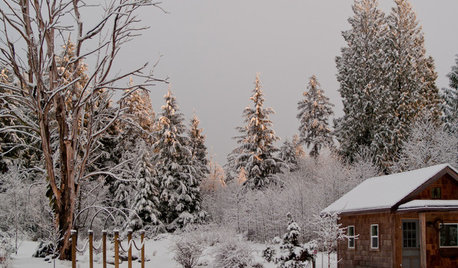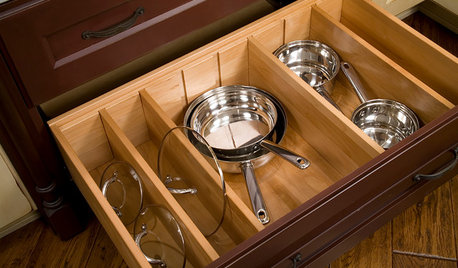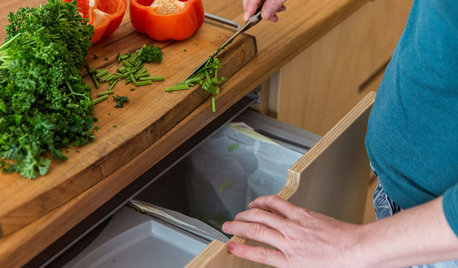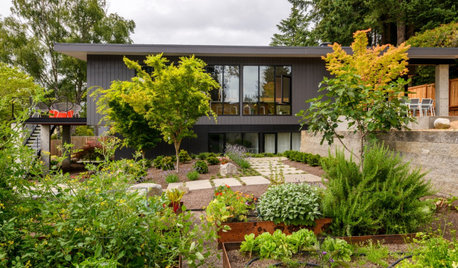composting end products?
Related Stories

SHOP HOUZZThis Summer's Bestselling Outdoor Products
It’s time to refresh your patio space before the season ends
Full Story0

REMODELING GUIDES10 Unusual Interior Materials for High-End, Custom Appeal
Express your personality more easily than ever with laminates, wovens and even bone all around the home
Full Story
GARDENING GUIDESGet on a Composting Kick (Hello, Free Fertilizer!)
Quit shelling out for pricey substitutes that aren’t even as good. Here’s how to give your soil the best while lightening your trash load
Full Story
WINTER GARDENINGWhat You Should Know About Composting in Winter
Find out how to keep your compost pile hot when the weather outside is freezing cold
Full Story
DECORATING GUIDESHand-Painted Wallpaper Brings High-End Artistry to Rooms
Exquisite papers painted in glorious detail turn blank walls into expressive canvases conjuring luxury
Full Story
MOST POPULARA Professional Organizer Shares Her Top 6 Storage Products
Drawer dividers and undersink trash cans are among a pro’s go-tos for getting organized in the kitchen and elsewhere
Full Story
KITCHEN DESIGNWhy You Might Want to Give ‘Bokashi’ Composting a Try
Turn kitchen scraps into gardening gold with this low-maintenance, space-saving method
Full Story
GARDENING GUIDES10 Ways to Make Your Garden More Productive
Maximize your garden’s growth and output by building healthy soil, expanding growing space and collecting rainwater
Full Story
KITCHEN DESIGNAutomation Meets Innovation in the Newest Kitchen and Bath Products
Home features from closets to toilets are going touchless, remote controlled and more accessible than ever. See for yourself
Full Story
TRENDING NOW10 Trends in New Bathroom Design Products and Features
Find out what’s new in bathroom tubs, fixtures, lighting and more from the latest offerings timed to the KBIS trade show
Full Story



vgkg Z-7 Va
daninthedirt (USDA 9a, HZ9, CentTX, Sunset z30, Cfa)Original Author
Related Discussions
Composting expired food products
Q
compost & clorox green works products
Q
Using Wood Products as Organic Mulches or in Composting
Q
1st Time Composter with One-Years Product
Q
tsugajunkie z5 SE WI ♱
daninthedirt (USDA 9a, HZ9, CentTX, Sunset z30, Cfa)Original Author
tsugajunkie z5 SE WI ♱
daninthedirt (USDA 9a, HZ9, CentTX, Sunset z30, Cfa)Original Author
tsugajunkie z5 SE WI ♱
daninthedirt (USDA 9a, HZ9, CentTX, Sunset z30, Cfa)Original Author
gardengal48 (PNW Z8/9)
daninthedirt (USDA 9a, HZ9, CentTX, Sunset z30, Cfa)Original Author
kevin9408
daninthedirt (USDA 9a, HZ9, CentTX, Sunset z30, Cfa)Original Author
gardengal48 (PNW Z8/9)
daninthedirt (USDA 9a, HZ9, CentTX, Sunset z30, Cfa)Original Author
gardengal48 (PNW Z8/9)
daninthedirt (USDA 9a, HZ9, CentTX, Sunset z30, Cfa)Original Author
kevin9408
daninthedirt (USDA 9a, HZ9, CentTX, Sunset z30, Cfa)Original Author
daninthedirt (USDA 9a, HZ9, CentTX, Sunset z30, Cfa)Original Author